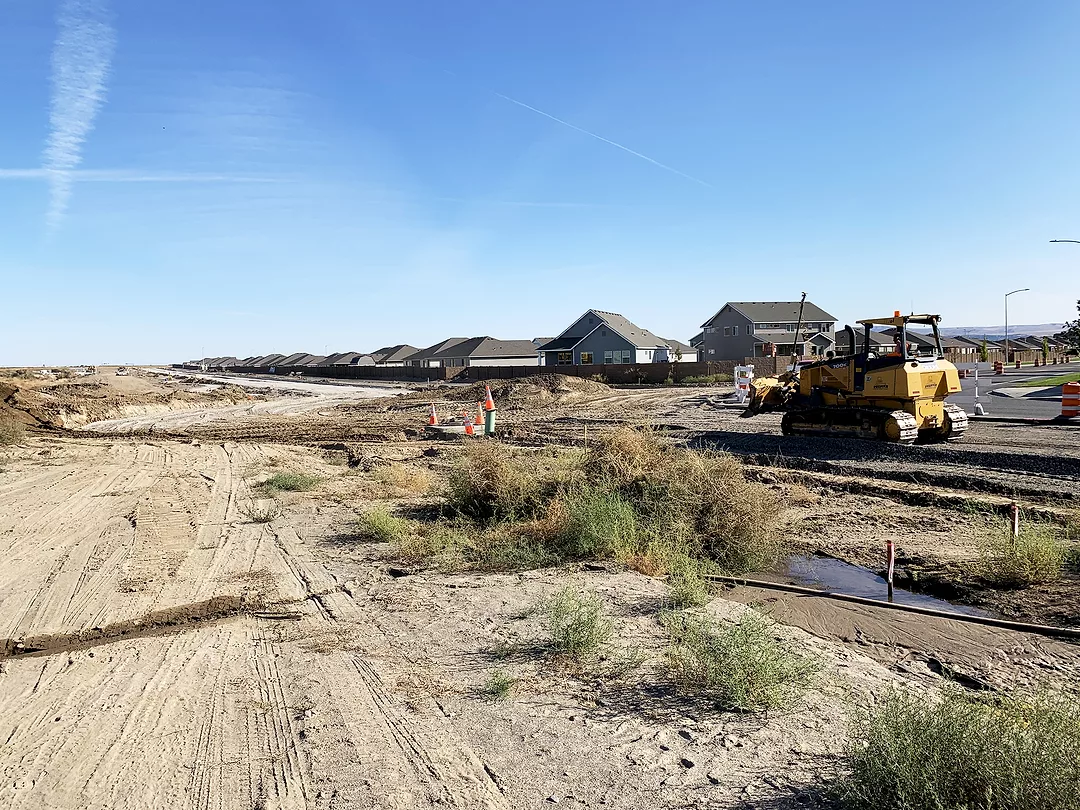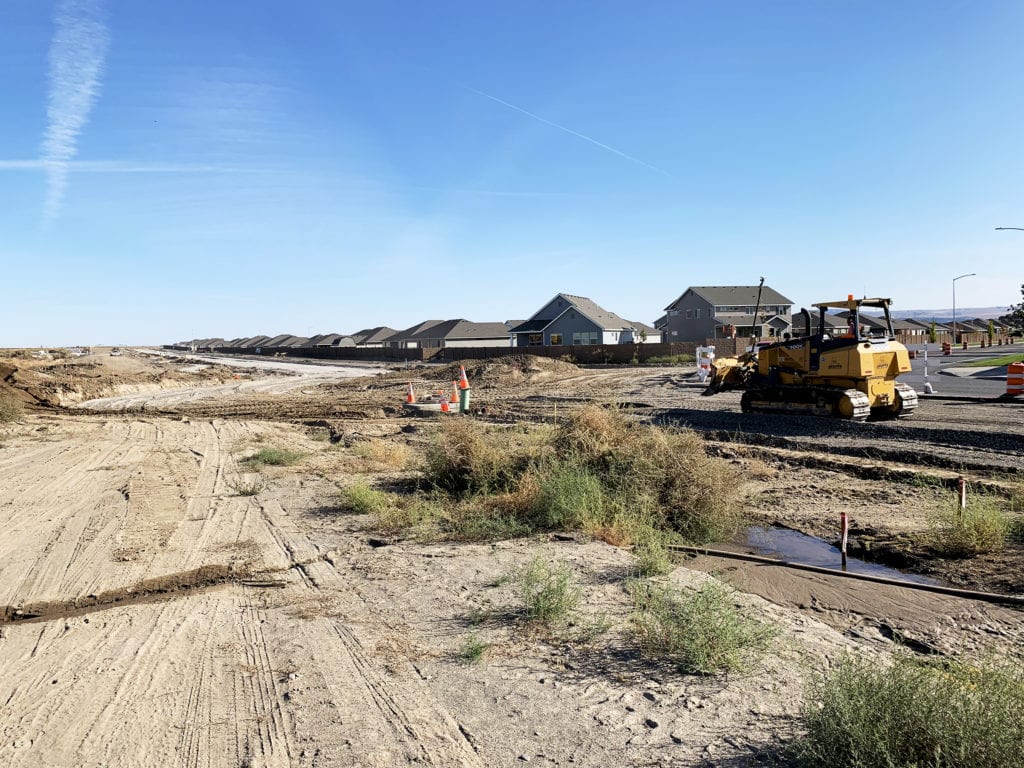
Home » DNR repurposing land to make more money for schools
DNR repurposing land to make more money for schools

October 14, 2019
By Andrew Kirk
At statehood, the federal government granted Washington millions of acres of land to be managed for the support of public schools, including universities. Today, it, along with other lands dedicated to different state needs, is managed by the state Department of Natural Resources.
A portion of the 1 million acres of state farmland managed by the DNR is in Benton and Franklin counties. State Lands Commissioner Hilary Franz has been working to convert farmland now surrounded by development in Pasco and Richland into neighborhoods and businesses.
“We’re working to diversify the lands so they’re not just agriculture and timber. Our responsibility is to fund schools and counties intergenerationally. We’re working to diversify that portfolio and now working to leverage more of our commercial and industrial lands,” Franz said.
In addition to generating more money for schools with long-term leases, developing the land also aids economic growth.
“(Franz) has shown a keen understanding of the need to enable the agency to further develop appropriate commercial properties in the DNR portfolio that are within the Pasco Urban Growth Area,” said Rick White, city of Pasco’s community and economic development director. “For example, DNR recently partnered with the city to establish a local improvement district for extension of Chapel Hill Boulevard and installation of utilities from Road 68 to Road 84 just south of Interstate 182.”

When DNR installed the irrigation pivots near Road 68 so it could be farmed, it increased the value of the land. When the opportunity arose to increase the value again by inviting commercial development on 73 acres, DNR installed infrastructure to invite long-term leases.
In Pasco that turned into the LID, with a $4 million investment from the state Legislature. Franz estimated the leases will eventually bring in $2 million each year for K-12 Common School Trust.
The money reaches Tri-City school districts indirectly, said Ty Beaver, spokesman for the Richland School District. The state Legislature draws upon the funds to allocate money for school construction and other education needs. It is therefore impossible to say how much local funding comes from the local leases.
In south Richland, a 300-acre orchard on DNR land north of Kennedy Road near Queensgate will be available for development in 2021 after a lease with Chiawana Orchards expires. The city has already rezoned the land, hoping 200 acres will become a residential neighborhood while the DNR will improve 55 acres for commercial leases.
Mike Stevens, planning manager for the city of Richland, said the rezone was passed May 21 to allow for multi-family, medium-density residential units, as well as low-density single-family homes, and parks and/or public facilities in addition to the commercial allotments.
After Jan. 1, 2021, the DNR will auction the 200 acres and retain management of the 55 acres. The plan has been in place since 2017, Stevens said.
“We might sell a piece of land that’s not a great revenue generator, or is zoned high residential (like the one at Chiawana Orchards) and go buy better ag land or timber land or commercial land. It’s very difficult to manage lands in checkerboard patterns. It’s easier in big blocks,” Franz said.
Not all agricultural land has been slated for development. Near Paterson, the DNR is supporting the transition of land from wheat to row crops.
In an effort to not lose water rights worth about $41 million on 5,000 acres in south Benton County, DNR struck a deal with Frank Tiegs LLC. Tiegs is president of the Washington Potato Co. headquartered in Pasco.
The DNR obtained water rights in the 1970s and had to use them by 2020 or lose them. For three years the department searched for a development partner to turn the dry wheat and grazing land into irrigated farmland. Earlier this year a pipeline from Paterson was completed by Frank Tiegs LLC to begin watering 3,100 acres of the farmland in the Horse Heaven Hills and begin growing potatoes, onions, corn and other row crops. The private company installed the eight-mile, $23 million pipeline in return for lower rent for the next 24 years.
The joint effort results in the roughly $155,000 in rent collected each year from the dry land jumping to about $625,000, and the $12,000 collected in taxes becoming $80,000.
Around Red Mountain DNR manages thousands of acres that grew no grapes as recently as 2017. Now in cooperation with Goose Ridge Vineyard, DNR land is planted with vines bringing in $1,100 per acre per year. Soon the operation near Candy Mountain will expand.
“Years ago it was almost nothing. Now it’s sizable dollars,” Franz said.
Lastly, DNR land near tiny Bickleton —southwest of Benton City in Klickitat County—was bringing in about $2 per acre. A recent solar power project means the land is now renting for hundreds of dollars per acre.
“The story coming out of the Tri-Cities with our land ownership and how we’re managing it is… we’re growing infrastructure and generating revenue for our schools,” Franz said.
Local News Education & Training
KEYWORDS october 2019





